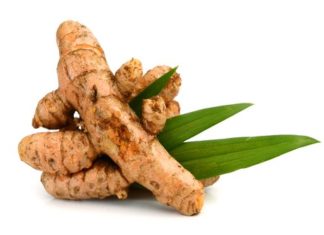. The identification marks
. How and why it arrives
. Ancient and modern natural remedies
When inflammation affects the paranasal sinuses, the most annoying symptoms can be successfully treated thanks to the grandmother’s methods.
Exchanging sinusitis for a common cold is quite easy because the starting symptoms are the same: stuffy nose, fever and headache . Yet there are some signs that should lead us to suspect that we are facing something different.
In any case, it is possible to prevent sinusitis. Read this article and find out how to do it.
The identification marks
The most important sign is the pain in the face, which usually affects the forehead, the areas above and below the eyes and the jaw, and which is accentuated when the head is moved or when pressure is exerted on the sore area.
The second sign is the appearance of a yellow-greenish secretion that descends from the infection site into the nose or throat.
If we add cough with phlegm, reduced taste and smell, we are most likely faced with a case of sinusitis, ie inflammation of the paranasal sinuses.
The latter are four pairs of cavities (located inside the cheekbones, the forehead, behind the nasal cavity and, in depth, behind the frontal bone) covered by the same mucous membranes that are found in the nose and mouth.
How and why it arrives
In the case of a cold or allergy , the tissues of the paranasal sinuses swell and begin to produce a greater quantity of mucus, just as happens inside the nose. But if the drainage system of these canaliculi blocks, the mucus remains trapped inside and facilitates the development of viruses, bacteria or fungi.
Sinusitis often resolves spontaneously, without the need for drugs, in two or three weeks (acute sinusitis). Sometimes, instead, it lasts for months (chronic sinusitis) and requires pharmacological therapies.
To speed up the course of the disease, it is best to avoid very dry environments, smoke, sudden temperature changes and cold temperatures.
If you are interested in a complete overview of all treatments for sinusitis read this article .
Ancient and modern natural remedies
In any case, there are natural remedies that help us alleviate the most annoying disorders, such as a stuffy nose and a headache. Starting with the fumigations up to the herbal teas.
Remedy
Benefits
fumigations
They counteract pain, muscle tension in the face, congestion and infection
Nasal washings
They humidify, cleanse and disinfect the nasal mucous membranes
Facial massages
Unblock nasal congestion
Bathrooms and showers
Decongest the mucous membranes
Herbal Teas
They eliminate toxins, thin the mucus, have anti-inflammatory and
astringent activity
Let’s see them in detail.
Suffumigi . Inhalation of steam is the most classic and ancient of draining therapies and is useful against pain, muscular tension of the face, congestion and infection. And it is also the simplest: just pour boiling water into a bowl, add aromatic herbs or essential oils and inhale deeply. Here are some “recipes”:
Ginger: take about 3 centimeters of fresh root and chop it into smaller pieces. Boil them in a cup of water for two minutes. Breathe the vapors, covering yourself with a towel. If you do not have fresh ginger available, pour 2 teaspoons of the powdered ginger directly into the boiling water.
All ‘ Garlic : In a bowl, beat up two or three cloves of garlic and add a teaspoon of apple cider vinegar. Pour over half a liter of boiling water and inhale the vapors.
To eucalyptus : in half a liter of boiling water, put a tablespoon of eucalyptus leaves, a tablespoon of thyme and one of pine buds. Inhale hot vapors two or three times a day.
Steam jet inhalers . They are the younger brothers of the fumigations and represent a more effective method for inhaling steam. You can buy them at the pharmacy, but they can also be hired.
Use them to inhale thermal waters (the most suitable are sulphurated and salsobromoiodic waters, ie sea), essential oils such as lavender , eucalyptus and helichrysum (antiallergic and disinfectant action), propolis (antibacterial action), lemon, chamomile and bicarbonate (antiseptic and soothing action).
Aerosol (with physiological solution) is also fine thanks to its cleansing and moisturizing function.
Nasal washings . If you have neither an inhaler nor an aerosol appliance, you can do nose washings with a squirt or syringe (without a needle). Perfect in this case the saline solution, which helps to humidify, cleanse and disinfect the nasal mucous membranes. It is obtained by dissolving a quarter of a teaspoon of salt and a quarter of a teaspoon of baking soda in 30 ml of water.
Massages . Thanks to the facial massage and the pressure on the sore points, it is possible to help unblock congestion.
Tea tree oil massages : spread a few drops of the oil, which has an antiseptic action, on the aching parts, massaging vigorously for 30 seconds. However, avoid the eye area.
Cinnamon pressures: mix half a teaspoon of cinnamon powder with enough water to make a batter. Apply to the area of the face corresponding to the blocked paranasal sinuses.
Bathrooms and showers . Hot vapors help to relieve mucous membranes. As soon as you wake up, take a hot shower: in the morning it is the most critical moment for sinusitis.
In the evening, before going to bed, enjoy the pleasure of a good bath, to which you will add a few drops of essential oils: that of lavender has anti-inflammatory properties, while those of juniper berries, myrrh and rosemary help reduce excess mucus and to detoxify the body (but be careful: avoid juniper berry and rosemary oils during pregnancy and breastfeeding).
Tisane . If you are fond of infusions and herbal teas, know that the dandelion root and that of licorice are perfect for the elimination of toxins, while the decoction of marrubio, hyssop and tussilage is excellent for thinning the mucus.
Also indicate these infusions, which are easy to prepare:
Ginger: has anti-inflammatory activity. Pour 1 teaspoon of freshly grated ginger and a teaspoon of honey into a cup of boiling water. Drink 3-4 cups a day. In the absence of the fresh one, use powdered ginger.
Fenugreek : it is a good decongestant. Put a teaspoon of fenugreek seeds in a cup of boiling water and let it infuse for 15 minutes. Strain and drink 3-4 cups a day.
Verbena: it is anti-inflammatory and astringent. Put 2 teaspoons of verbena in a cup of warm water. Let stand for 10 minutes, strain and drink, preferably sweetened with lavender honey.




















